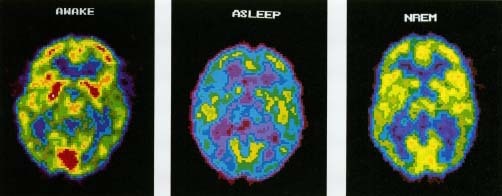I was walking through a field by my neighbor’s house in the middle of summer. I was dehydrated and exhausted, and my dog was walking beside me. I was probably about 300 yards from my neighbor’s house, yet as I kept walking, I never seemed to get any closer. It seemed to be never-ending, going on for hours. The next thing I knew, I was laying in my bed, sweating, in my pajamas. This was one of my recurring childhood dreams, and it never got any less terrifying. Recurring dreams are a very common problem, but could there be a way to stop them? Scientists studied just that, and put together reports that look at whether or not dreams can be controlled.
Remember that episode of SpongeBob where everyone’s favorite porous cartoon ran around Bikini Bottom jumping into everyone else’s dreams and, consequently, changing the “plot” of the dream? It turns out that isn’t so far-fetched (the changing-the-dream part…not the whole jumping-into-other-people’s-subconscious part). In an article posted on Scientific American, assistant clinical psychology professor at Harvard, Deirdre Barrett explained that there are many different factors that play into if/how dreams can be controlled.
“…Whether you’re trying to induce lucid dreams, whether you’re trying to dream about particular content or whether you’re trying to dream a solution to a particular personal or objective problem. Another really common application has been influencing nightmares, especially recurring post-traumatic nightmares–either to stop them or turn them into some sort of mastery dream.”
– Deirdre Barrett
She went on to explain that if you wish to solve a problem in a dream, AKA “sleep on it,” you should simply think over the problem before bed; both logically and visually. To dream about a specific person, place, thing, etc….you’d follow basically the same path as for problem solving. Then, there’s the interesting topic of changing recurring nightmares, usually from traumatic experiences; psychologists say that by simply envisioning and describing a different ending to the nightmare, one that makes you feel safe or less frightened. On the other hand, WebMD suggests that sticking to a constant pattern of sleeping at the same time each night will help reduce nightmares, as well as exercise and other means of stress-relief.
An image posted by Human Illnesses shows your brain activity while asleep, awake, and during REM, which is when most all dreams occur. As you can see, the brain is functioning much more during REM than other stages of sleep, and is more similar to the brain while it is awake.  My hypothesis is that if you can influence, while awake, the same parts of your brain that are active during REM and while awake, it would be a link and would help to change the narrative path of a dream.
My hypothesis is that if you can influence, while awake, the same parts of your brain that are active during REM and while awake, it would be a link and would help to change the narrative path of a dream.
Recurring dreams are awful, there’s no doubt about that – whether it’s walking through a never-ending field or something even worse, you want nothing more than to get rid of them. Now, with the help of the research of top psychologists, it appears fixing these problems are just a thought away.
 This article also mentioned the Flynn effect, which if you remember Andrew telling us, means that the child is smarter than the parent, the parent is smarter than the grandparent, etc. So which one is it, an increase or a decrease? Unfortunately, the article didn’t give a definitive answer. Personally, I think there is stronger evidence for a decrease than an increase. I mean, hello, there are people who don’t know what the Fourth of July is…seems like a pretty strong sign of a decrease to me.
This article also mentioned the Flynn effect, which if you remember Andrew telling us, means that the child is smarter than the parent, the parent is smarter than the grandparent, etc. So which one is it, an increase or a decrease? Unfortunately, the article didn’t give a definitive answer. Personally, I think there is stronger evidence for a decrease than an increase. I mean, hello, there are people who don’t know what the Fourth of July is…seems like a pretty strong sign of a decrease to me.
 Other than treats and rewards, what is it that animals understand of the human culture and value highly enough to be offended by? I know that I’ve been at college for almost a month, and gave very little explanation to my poor, confused beagle at home. Yet I know that she will still be very excited to see me when I go home next weekend. If I’d left for a month with little explanation to my mother, I think, needless to say, the ending of that story would be very different.
Other than treats and rewards, what is it that animals understand of the human culture and value highly enough to be offended by? I know that I’ve been at college for almost a month, and gave very little explanation to my poor, confused beagle at home. Yet I know that she will still be very excited to see me when I go home next weekend. If I’d left for a month with little explanation to my mother, I think, needless to say, the ending of that story would be very different. My hypothesis is that if you can influence, while awake, the same parts of your brain that are active during REM and while awake, it would be a link and would help to change the narrative path of a dream.
My hypothesis is that if you can influence, while awake, the same parts of your brain that are active during REM and while awake, it would be a link and would help to change the narrative path of a dream.

